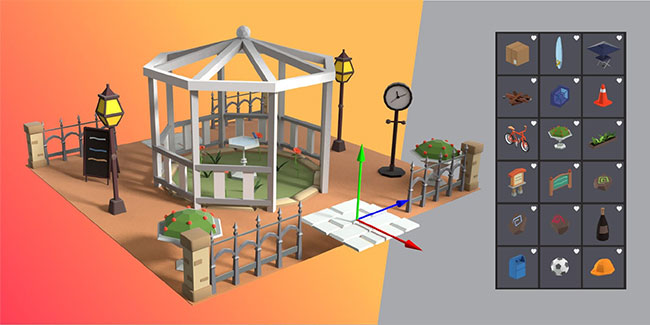Influencer Marketing In The Times of The Metaverse

As marketers, over the last couple of years, we’ve all either included an ‘Influencer Marketing’ component as part of our overall 360 marketing campaigns or watched, discussed or critiqued one done by other brands and agencies. Last year saw a new entity spawning itself and spreading like wildfire. If you’re wondering what I’m referring to, it’s the rise of the ‘Metaverse’, which for all practical purposes, seems to be the new platform on the block, with brands and organizations scrambling to get a piece of the pie.
Metaverse: The Next Frontier Or A Passing Fad
Predicting how metaverses will grow and evolve over the next couple of years is a task best left to the soothsayers. But, let’s admit it, these virtual platforms offer an immersive environment that’s unlike any other. While there are plenty of new Metaverse platforms being unveiled each week, a few that stand out thanks to their one-of-a-kind experience and gameplay would be:
Decentraland:

One of the most popular platforms, this one’s been making the headlines for all the right reasons. A number of luxury and other global brands have invested in this platform by buying ‘virtual land’, enabling them to offer a branded experience to fans via the platform.
So, does the future of digital marketing lie on metaverses? I think Mr. Zuckerberg would be the right person to answer that 😉
Sandbox:

Another one of the OG metaverses of the Web 3.0 era, this platform has partnered with major celebrities & musicians including Snoop Dogg, DeadMau5, popular brands and IPs such as Adidas, The Smurfs, The Walking Dead, etc.
The interesting thing about this platform is that it gives users an opportunity to ‘play-to-earn’ by creating immersive experiences and exciting challenges. The celebs and musicians can offer one-of-a-kind NFTs for sale, along with experiences such as virtual music concerts, special performances and music videos and songs exclusively released on the Sandbox metaverse.
Upland:

An NFT-based metaverse that’s geo-spatially mapped to real world locations, Upland offers players the opportunity to own virtual properties in popular locations including Manhattan, Los Angeles, San Francisco, etc. These include world famous locations such as Times Square in New York, homes of celebrities as well as properties in popular films and tv shows.
Built on top of a Google Map based interface, this game allows players to buy properties by ‘minting’ them using the in-game currency and resell them on the secondary market for a profit. Additionally, players can build constructions which are layered on top of the properties they own and participate in challenges such as treasure hunts, own cars and create racetracks for drag racing, collect different types of NFTs including the American football league players’ legits, etc.
Influencer Marketing X Metaverse
If you’re wondering how influencer marketing would work in concert with metaverses, well, you’ll be surprised. Each of the metaverses mentioned above have their own legions of fans, who are popularly referred to as the ‘Community’, with members strategizing, brainstorming ideas and making deals via in-game chat or on the brand channels such as Telegram and Discord.

These communities have led to the emergence of a new set of experts aka Influencers or Content Creators, who offer advice, share ideas and engage with the community members, either through their YouTube channel or on other social media platforms.
Many of these content creators partner with 3rd party brands or service providers within the game and promote their offerings via the content they create. Some of the popular content creators go as far as to create unique game-in-game content, where they either give away an NFT or a unique aspect of the game to their fans, who compete and complete certain challenges.
In Conclusion:
One can safely say that the strength of these Metaverses can be judged by not only the number of players and partnerships they have with third party brands, but also by the strength of their community and how engaged they are.
While most of these Metaverses are still in the initial stages, the next couple of years will see a number of new ones emerging, while many others will probably either shut down or get acquired or merged by the bigger players.
